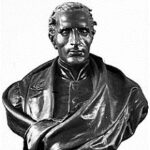World Braille Day – Student Essay
World Braille Day – Student Essay: World Braille Day is celebrated around the world on 4 January to create awareness of the importance of braille as a means of communication in the full realization of the human rights for blind and visually impaired people.
United Nations General Assembly chose the date for World Braille Day in November 2018 via a proclamation. The reason for choosing 4 January as World Braille Day is that Louis Braille the inventor of Braille writing system was born on this day. The first World Braille Day was celebrated on January 4, 2019.
What is Braille ?
Braille is a system designed for visually impaired people to enable them read and write. This universally accepted system consists of a code of 63 characters, each made up of one to six raised dots arranged in a six-position matrix or cell. These Braille characters are embossed in lines on paper and read by passing the fingers lightly over the manuscript.
It can also be read by using refreshable braille displays that connect to computers and smartphone devices. Braille can be written using a slate and stylus, a braille writer, an electronic braille note taker or with the use of a computer connected to a braille embosser.
Who initiated World Braille Day?
Braille is named after its creator, Louis Braille. He was born on 4 January 1809 in Coupvray, France. Louis Braille completely lost his eye sight at the age 5 due to the accident with a stitching awl that happened to him when he was 3 years old.
 Braille was bright student.. He attend the Royal Institute for Blind Youth [one of the first schools for blind children in the world] and he excelled in his studies.
Braille was bright student.. He attend the Royal Institute for Blind Youth [one of the first schools for blind children in the world] and he excelled in his studies.
While still a student there, he began developing a system of tactile code that could allow blind people to read and write quickly and efficiently. Inspired by a system invented by Charles Barbier, Braille’s new method was more compact and lent itself to a range of uses, including music. He presented his work to his peers for the first time in 1824.
In adulthood, Braille served as a professor at the Institute and had an avocation as a musician, but he largely spent the remainder of his life refining and extending his system. It went unused by most educators for many years after his death, but posterity has recognized braille as a revolutionary invention, and it has been adapted for use in languages worldwide.
Comments
Related Posts
![International Labour Day [May Day] - History | Significance | Quotes](https://lyricsraaga.com/wp-content/uploads/2023/04/International-Labour-Day-May-Day-History-Significance-Quotes-200x125.jpg)
International Labour Day [May Day] – History | Significance | Quotes

World Poetry Day – History | Significance | Themes | Quotes

International Day of Happiness – History | Significance | Theme | Quotes
About The Author
lyricsraaga
Lyricsraaga is a portal designed to provide the lyrics of Indian movie songs across various languages like Tamil, Kannada, Telugu, Malayalam and Hindi.
